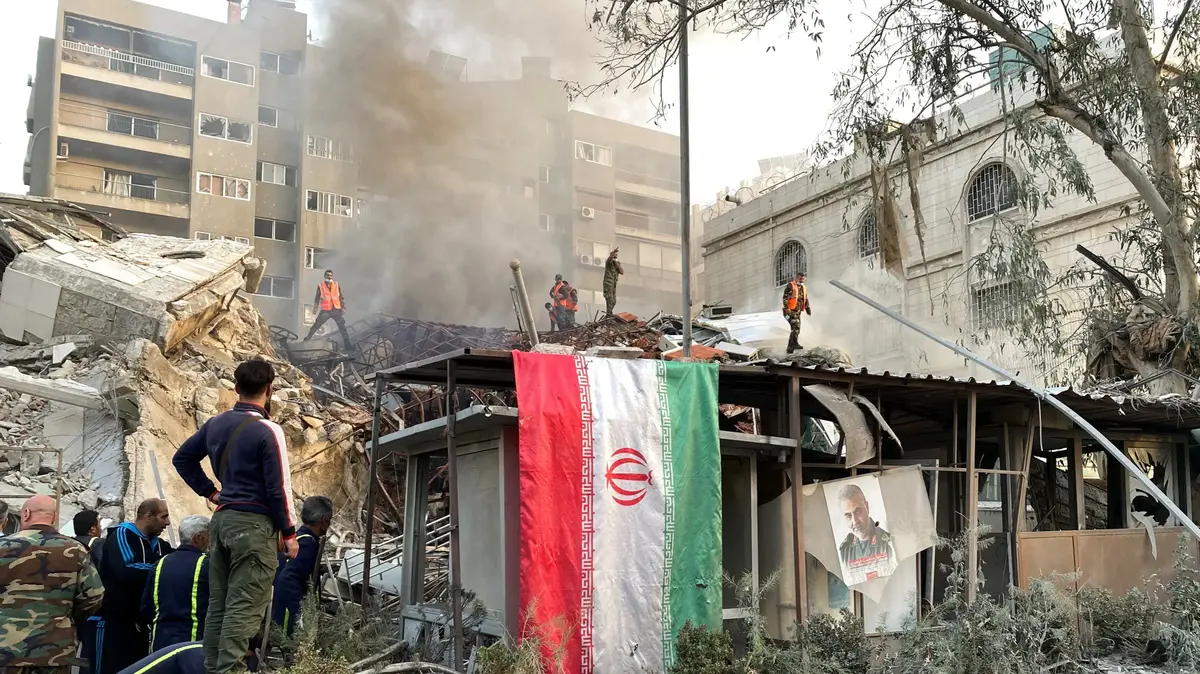culture
TV
TV review
The borax and the fracture: What makes "conventions" ("Ethos") a phenomenon among the Israeli public?
It is doubtful if anyone expected such a great success of the Turkish series "Conventions" on Netflix, including here in Israel.
With gentleness, wisdom, beauty and realism she sketches life in Turkey for all its complexity.
Beyond its unquestionable quality as a television work, what is the magic secret of the drama among the Israeli audience?
Tags
Ethos - Series
TV review
Netflix
Songs of salvation
Tuesday, 12 January 2021, 08:56
Share on Facebook
Share on WhatsApp
Share on general
Share on general
Share on Twitter
Share on Email
0 comments
Excerpt from the "Rehearsals" series here 11, starring Erez Driggs, ...
4 killed and 52 arrested in riots in Washington after ...
The "Lupine" series, Omar C.
Miri concludes with a clip for the song "Fresh Soup"
The red notebook
The "Bridgerton" series produced by Shonda Reims on Netflix
Thousands demonstrate near the Prime Minister's Residence in Jerusalem and Caesarea: ...
Tears of a woman
Trailer for the series "Conventions" (Ethos) (Netflix)
Several things stood in the way of the "Conventions" series when it aired on Netflix;
First of all, she's not American.
Second, it is not in English and requires viewing with subtitles or dubbing.
And then she's also Turkish?
After all, everyone knows that Turkish series is one big soap opera, with exaggerated acting and ridiculous melodrama.
And suppose we have overcome this obstacle, or we are actually one of the millions of people in the world who really like Turkish series - then the image comes and takes us down completely.
A woman with a hijab?
It does not look as light and romantic as a Turkish series, but rather heavy and oppressive.
And despite all these barriers, the series very quickly became a darling of critics and a favorite of viewers.
Turkey is a powerhouse of telenovela series, for all that it implies from the genre.
But "Conventions" is by no means a telenovela, in which everything is big, dramatic and fateful.
It is also not an urban action series about the dirty life of the dangerous city, although it has all the themes that can fit these two genres: an encounter between two worlds that have an unbridgeable gap - class gap and religious gap, poverty, disappointed love, sex, Death, insanity, and even sexual assault and the search for sexual identity - issues that are taboo.
But such a series would require big gestures and melodrama, while "Conventions" tells a very small story of a small, almost random life, of some random characters.
Its charm is in its simplicity.
The sophisticated writing presents the important plot points in a refined and subtle way, sketches the characters layer by layer from chapter to chapter, and more importantly - its creators present us everything, without fear.
The more she whispers, the clearer her voice is.
Every story she shows us is presented with love and compassion.
Each of the characters has depth, history, life circumstances, which are revealed to viewers gradually, when the right moment arrives.
We still discover great things about the characters by the way, right in the last few scenes.
Looking for recommendations or want to recommend new series?
Want to just talk about TV?
Join our group on Facebook,
Digging Broadcast
More on Walla!
NEWS
Between a ripping comedy and a scratchy nickname: the 7 moments that made "Rehearsals" such a wonderful series
To the full article
Sharp and smart.
"Conventions" (Photo: PR, Netflix)
The greatness of the creator, Barkon Oya, is in the way that the delicacy of writing and directing still manages to convey complex issues, such as tolerance for another culture, the judgment of the person standing in front of you, the state of society in Turkey, the inner world of women, and more.
This is interestingly expressed in the name of the series.
In fact, it's a series with three names (at least).
Its name in Hebrew is "Conventions", its name in English translated to "Ethos", and its original name is "Bir Başkadır".
Conventions are a socially acceptable set of laws, created by those in power (political, religious, social, economic), who are usually the people who have the most privileges in society.
This translation does not quite capture the complexity and size of the series' English name - Ethos.
An ethos is not only a set of rules and morals of any society, but also in a sense its history, the story it chooses to tell itself about itself, the way it is reflected through a narrative of years, sometimes centuries.
If you look at it this way, it seems that the series is trying to do something very pretentious and not simple - to represent some kind of cross-section that allows a new look from the outside (we, Netflix viewers from all over the world) at Turkey's narrative, its story, its redesign.
These two names speak to the series at the macro level - an examination of Turkish culture at a distance, in an almost academic way.
But of course it also has another name, its original Turkish name - "Bir Başkadır", a phrase that means "the other" or "one different" or "something different from all the other things".
And this is a headline that already speaks to life at the micro level, in the everyday and confusing way in which human beings are forced to deal with the diversity of the other every day, every moment.
The characters' lives intersect in unexpected places, and they are surprised and sometimes shaken by the encounter with the "different one."
More on Walla!
NEWS
"The Bride from Istanbul": Even lovers of the series are invited to give up the book
To the full article
Learns to transcend the prejudices inherited from her.
"Conventions" (Photo: PR, Netflix)
Fake plastic flower
Turkish television is constantly concerned with the gap between classes and cultures within the country.
Love stories are almost always around the tension between a poor family and a rich family, between it and the modern world, where there is money, going out, building a career (even if you are a woman) and no one telling you how to dress.
As in the vast majority of the series, here too the city of Istanbul represents this world, with its urban cosmopolitan face, a Western-looking life, full of yoga, psychology, casual sex, fashion and luxury.
The other side of the equation is a traditional family (sometimes rich, sometimes not), where everyone lives in the family home together until the wedding, headed by the patriarch and according to which anything will be settled.
Whether it's a father, a grandfather, or a brother, just like in "conventions," the wives of the family must be allowed to do almost anything - from going to work, to what time to return home, no matter what age they are.
Turkish dramas do not usually speak directly of religion, but it is present all the time, in the blurring between what is considered worthy, humble, dignified and respects family honor, and what is accepted in traditional, religious society, what is considered the will of Allah.
In this series all this tension was laid on the table, exposed and explicit.
Not rudely, not in defiance, but in almost dry factuality.
Here, this is the reality we are all familiar with.
The plot, which charts a year in the characters' lives, takes us by the hand through small scenes, moments in life, and along the way there is a breakdown of everything we thought about the characters when we first met them.
At the end of that year everyone went through a process within their private worlds, and maybe that happened to viewers as well.
Just as Miriam's encounter with Perry changed them both, we too had a chance to confront our judgment.
More on Walla!
NEWS
They lost their child at birth.
Now the tragedy has become Netflix's most talked about movie
To the full article
Knows what she has to do to find herself.
"Conventions" (Photo: PR, Netflix)
It turns out that yeast, with its handkerchief, proverbs and "inshallah", is not some ignorant woman who needs the help of the learned psychologist, but will not understand what the therapist is telling her anyway.
In fact she is sharp and smart.
She may not have learned, but she is able to see Perry's gentle manipulation.
Although at first she seems dreamy, in love with her boss and his so-called glamorous life, she turns out to be a practical woman who is able to see an opportunity for a good life when offered to her, whether in the form of help and care, or in the form of marriage outside the fantasy world.
Perry, for her part, was able to learn a shaky lesson about herself, look at the prejudices inherited from her childhood and transcend them.
This made her a looser, happier, more empathetic person.
Roya, who from the first scene was labeled "crazy," the one who is seemingly lost, paranoid, endangering her children - actually knows what she has to do to find herself again.
She shows courage and power that could not be guessed to exist within her as she confronts her tragic past and puts it behind her.
Hieronisa also found the courage to leave her childhood home and her beloved father, to face him as she really is, without a head covering, and to embark on a new path, to a place where one can hopefully live with her beloved.
More on Walla!
NEWS
Trust Sol, Queen Gambit, Destroy You: Walla!'S 2020 Series Parade!
Culture - The Big Ten
To the full article
Technical doing that connects us to a collective memory.
"Conventions" (Photo: PR, Netflix)
The creator is very aware that no one expects a Turkish series to be like this.
The tension between the classes is reflected even here, with the series actually using this contradiction within the plot.
Miriam, who represents the seemingly inferior class, is a devout observer of those Turkish series, which are also considered (in Turkey and here with us) inferior, suitable for "your people" and people in the lower class.
Even Melissa, the lead actress in the drama that Miriam is watching, feels the need to apologize and downplay the importance of the series to those she is trying to impress.
"She's for simple people, people from Antalya, from the neighborhoods…" she says.
It embarrasses her that she is participating in a "stupid" series, so much so that she cancels her own achievement.
When Miriam accidentally meets Melissa she is in the market - the difference between the actress and the character she plays confuses her.
She is disappointed that the character "Schneiz" is not what she imagined, and does not meet the standards of what is considered good and innocent in Miriam's world.
At the same time she has a "crash" on her boss, Sinan, even though he doesn't meet those standards at all, because he and his lifestyle are reminiscent of the lavish and rich heroes of the soap operas.
As the Hodja hints at saturation, Miriam also seems to be a bit in love with the artificial flower, but life is not like that, not perfect made of plastic.
Ironically, all the actresses and actors in "Conventions" have previously starred in one Turkish telenovela or another.
Everyone and everyone must have been in Melissa's place and had to advocate for this work, even though millions of people all over the world love them, despite awards and money and publicity, even though there are excellent Turkish series.
There is still a very strong social convention about what is right and what is inferior, what is a masterpiece and what is a poor work.
There is a sense that the creator is very aware of the fact that the only reason his series will be accepted as an equal (on Netflix), and that will be found "worthy" of criticism subject to much less American American series, is the fact that it is represented as "not a Turkish telenovela as you know it."
In every article, review, and even viewer comments, one can find variations on "the surprising Turkish series", "this is not like the Turkish series, this is a quality series", and the like.
Oya found a way to talk about it at the meta level, within the narrative, and that's just another way to reflect our dual morals in society, and how we tend to define people and things as "something else" to feel better about ourselves.
More on Walla!
NEWS
Marvel, Rome and Asimov: The series we most look forward to in 2021
To the full article
Longing for life on the other side.
"Conventions" (Photo: PR, Netflix)
Window to the Mediterranean
Another technique he uses to convey his messages is the stylish directing, which connects us to the Turkish collective memory, to the cultural history of this great and diverse country.
We promised ethos, didn't we?
The series is modern but filmed like old movies, with the aesthetics of the seventies - collages of landscapes, fast zoom-in from a wide photo, and even the colors are sometimes reminiscent of a "borax" movie from 40 years ago.
If that's not enough, on the ending headlines we see random shots from Turkish streets in the 1980s, and a number of times very deliberate use was made of a grainy VHS performance by beloved Turkish singer Freddie Ozban, whose music once crossed audiences but now sounds kitschy and tacky.
But the series does not mock the old world, but indulges in this nostalgic and romantic kitsch, gives it a place of honor, and uses it to mark where Turkish society came from and where it is going.
And you don't have to be Turkish to feel it.
This series tells Israelis on exactly the same strings, and it's surprising to see how this nostalgia somehow just speaks to us in our language.
We too are Mediterranean, our seventies and eighties also looked like this, we too made sticky films, bursting with melodrama, about the troubles of the poor and impossible love between classes.
Everything in "Conventions" is familiar, pressing the buttons of forgotten memories, which belong to movies like "Nurit," "Sarit," even "Casablanca," not to mention Friday night's Arab movie.
The eye is accustomed to this scenery, to this wear, and the ear is accustomed to the grandiose orchestral music.
And it’s not just nostalgia that works on us.
After all, in Israel, too, there are huge buildings in the same metropolis with modern apartments and corridors without uniqueness, as well as makeshift one-story houses with tin roofs in areas that look almost rural.
And if that's not enough, then we do not have to go far to identify a similar social rift in our country, only in a change of cloak, in the obvious comparison with the gaping chasm between secular Israel and religious-ultra-Orthodox Israel.
Here, too, people who preach pluralism and freedom of expression are appalled at the sight of a woman in disguise, and the religious world finds it difficult to look at secularism as something legitimate, not sinful by its very existence.
If "Conventions" had been adapted into an Israeli series, this time Miriam's character is a religious single woman who needs permission from both her older brother and the rabbi to go to psychotherapy, would the Israeli Miriam and Perry have been able to give each other space and overcome these differences to change and open up?
More on Walla!
NEWS
The "Bridgerton" twist is surprising, but does it also make sense?
To the full article
A very small story of a small, almost random life.
"Conventions" (Photo: PR, Netflix)
And perhaps we will return for a moment to the Israel of the "borax films" era, in which the social rift revolved around Mizrahis versus Ashkenazis, and this was the second thread that ran through all those narratives.
The Mizrahis who were considered inferior, poor, ignorant, and their attitude toward religion provoked resentment among Ashkenazis, who in contrast positioned themselves as superior, wealthy, academic, and secular.
This rift is still deep in the heart of Israeli life.
And although the past decades have improved the situation, racism and prejudice are still rising to the surface.
Not to mention the collective memory of us all, the one that identifies itself or its childhood in images that adorn "conventions."
The simple and rude Mizrahi with the peppery language, compared to the arrested Ashkenazi academic - these are also racist clichés that the same two female characters can represent in Israeli drama.
The reason why this series is so successful in Israel, apart from its quality and beauty, is simply due to the fact that it looks very accurate to us.
Surprisingly, the ethos of Turkey is not very different from parts of the Israeli ethos.
We are all in Israel somewhere between these two worlds, between Perry who chooses to live in her intellectual and modern bubble, and she has strong opinions about "another" she has never really met, other than one maid or another;
Through the supposedly naive Miriam, who sees in the world the fruit of a distant fantasy or ideal that has nothing to do with the reality of her life;
And to Hieronisa, who longs for life on the other side, not because they look glamorous, not because she does not love or respect the world she comes from, but because only in the other world can she possibly be who she really is.
Share on Facebook
Share on WhatsApp
Share on general
Share on general
Share on Twitter
Share on Email
0 comments









